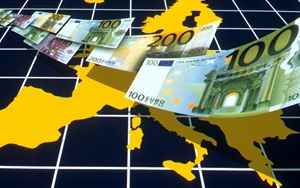(Tiper Stock Exchange) – From 1st January Croatia officially joined the Eurozone and the Schengen area, at the end of a long journey of post-war reconstruction and recovery and of the progressive approach to Europe, especially after the arrival in 2000 of a strongly pro-European and democratic government. The fundamental step was taken in 2013, when Croatia last joined the EU. For the Schengen Area instead there have been no entries since 2008.
With this step Croatia is the twentieth State to adopt the Euro after Lithuania (2015), Latvia (2014) and Estonia (2011) and the 27th country to join the Schengen area.
“Croatia worked hard to become the 20th member of the euro area, and it succeeded,” said ECB President Christine Lagardeadding that this new entry “is proof that the euro is an attractive currency that brings stability to its members”.
“The new year is a time for new beginnings, and today there is no better place in Europe to celebrate it, as a day of celebration and pride for Croatians, but also for all citizens of Europe,” said the President of the EU Ursula von der Leyen.
Croatia, a small state with a 60 billion euro GDP that it lives almost mainly on tourismis the second Balkan state to enter the Eurozone after Slovenia, while the path of rapprochement to the EU is still long for the other states of the former Yugoslavia, such as Serbia and Kosovo, which are still plagued by clashes between different ethnic groups .
Certainly, Croatia as well as Slovenia have benefited from a higher one proximity to the European blocone separated from Italy by a thin strip of sea and a lot concentrated on tourism, which is worth about 20% of the GDP, the other very close to Austria and the central European block. But Croatia has managed to rebuild its infrastructure and has seriously tried to unhinge the corruption.
“We have caught up with Western countries that joined the OE almost a decade before us,” said the Premier Andrej Plenkovicadding “Croatia is still trying to reach the same economic and social standards, investment levels and business climate as the most advanced EU countries”.
